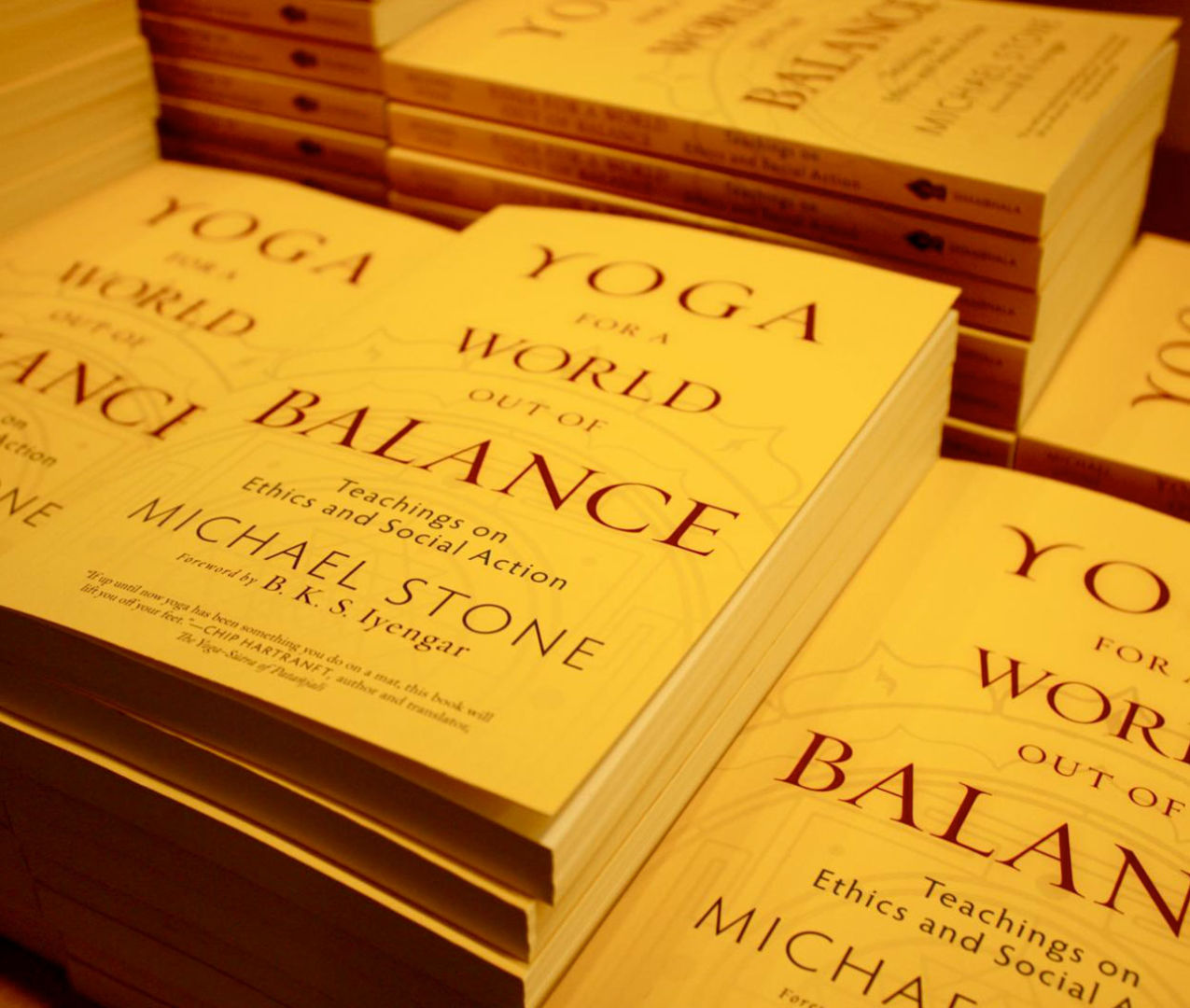Most people today (in the west anyway) come to yoga through the physical practice. I definitely did. After a few classes, I noticed that my body felt better but also my mind. I felt calmer after a class and I could see that it had the potential to really help with my anxiety long term. I became curious about the names of the postures, the emphasis on the breath, the snippets of philosophy that my teachers were dropping during the classes, and I started to want to know more about the whole thing.
Several students have asked me some questions about the link between yoga and hinduism, or some book recommendations to learn more about the philosophy. So I thought it would be a good idea to do little series of posts about the yogic philosophy. I’ll try not to make them too long :)
I’ll start with a book recommendation, or even an author recommendation: Yoga for a world out of balance, by Michael Stone. It can be overwhelming to dive into the yogic philosophy at first, because of all the new concepts, the sanskrit words, etc. I find that Michael Stone is always very clear and explains the yogic concepts in a very relatable way, adapted to our modern life.

